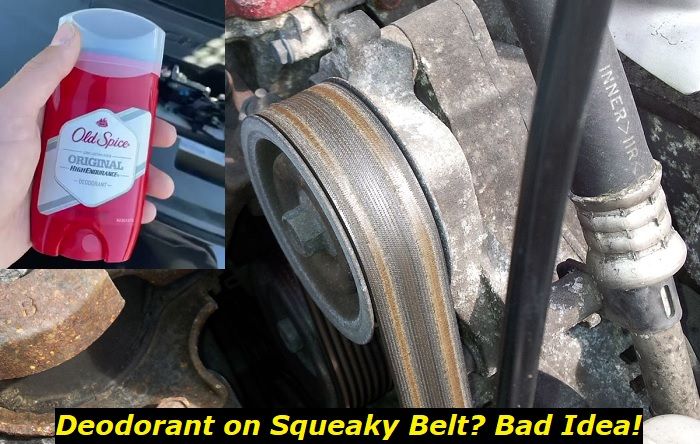The Pulsar LT is a product specially engineered for GM vehicles. Basically, this is a scanner that you plug into the diagnostic slot in your vehicle and get access to numerous functions that usually need professional programming. The idea sounds really good, but, unfortunately, it doesn't work at all times smoothly.
Addons in your car highlights
- Commonreasons:more power, cheap upgrades
- Average prices:$150 - $800
- Average waiting time:1 day
- Common problems:no efficiency, dangerous installation
- DIY mods:possible
- Level of satisfaction:low

What do we know about the Pulsar LT?
Pulsar LT is an American product that is developed and manufactured for American trucks and SUVs by General Motors - Chevy and GMC mainly. You will find different versions of the Pulsar LT prepared for various engine types and models. Basically, this is the equipment that is plugged into the OBD slot and mounted somewhere in a safe place. You can access it using the buttons on your steering wheel and this makes it very user-friendly.
The module is said to have more than a dozen functions and the manufacturer calls this unit multiple products in one. We wouldn't be so sure that this is a unique product and you can't find anything like that on the market but we are actually surprised with the number of functions and the easy access to them.
Here's what it actually offers:
- you can adjust tire size so that your speedometer showed the correct speed with larger or smaller wheels;
- you can take full control over your TPMS and stop suffering from its constant reset requirements;
- the full control over AFM/DFM, so cylinder management will never be a problem again in V6 and V8 GM engines;
- you can take control of the start-stop function in your vehicle;
- you can set up the speed limiter to make driving safer for other drivers in your vehicle;
- you can even get access to your transmission and readjust gear ratios;
- you get access to trouble codes and can read and clear them;
- you can launch manual DPF regeneration with a click of a button;
- you can use several other functions depending on your vehicle type.
So, the functions are all great and very useful and every GM truck or SUV driver actually needs them. This is like a scanner that can not only read codes but also allows you to take control over some functions that usually need professional programming. And this will not cost you a fortune.
The standard price for the majority of the versions of the Pulsar LT is $500. Yes, it's not that cheap for a code scanner but this thing may do much more than just reading codes, so it's worth the money. Also, you can buy a special version with a screen that makes it even more convenient to use. We would choose the option without a screen though because the steering wheel controls are very easy and convenient.
So, the option with a separate screen will cost you up to $900, depending on the version. Make sure you buy the Pulsar LT that is programmed for your engine type and vehicle model!
What are some concerns with the Pulsar LT?
So far, you may have thought that we are advertising this wonderful multi-tool. But advertisement is over, harsh reality comes instead. Life has taught us that the real properties of any product are not as magical as they are described in the ad, so let's see why Pulsar LT may not be as good as it's advertised.
First of all, it's not going to give you all those wonderful functions in any car. The eventual set of functions of the Pulsar LT depends on your vehicle. The trim, the type of the ECU, the year, etc. - everything is important. So, some vehicles will just get a code scanner which you can obviously buy about a hundred times cheaper.
Also, the Pulsar LT is quite hard to fixate properly in the needed place. GM vehicles may have different locations of the OBD slot and sometimes it's just impossible to find a proper place there to put your Pulsar LT and leave it there without being concerned about its safety.
Your electric system in the GM vehicle is not made for having something constantly connected to the OBD slot. This may lead to several issues including mechanical damage to the slot because of some careless actions.
Finally, you may code something in your vehicle and eventually fail to decode it. For example, you may set up the speed limit and then just fail to understand how to turn it off. If you set the 10 MPH speed limit and then something goes wrong, you will have to slowly move to the dealer to do something with this.
Not enough for you? OK, let's move on and see some reports about the Pulsar LT.
What are some common problems with the Pulsar LT?
We've spoken to some people who have already tested Pulsar LT and also went to forums and asked questions there to make our investigation more convincing. Unfortunately, we've found a lot of reports about the Pulsar LT.
And here are some common problems people face with it:
1. Warranty issues
If you use the Pulsar LT to change anything in your ECU settings, be ready to lose the warranty for your entire vehicle. Once something happens, a dealership will use diagnostics to learn whether something was changed in the vehicle. If they detect some changes in the ECU, the warranty will be voided and you will have to pay for all repairs and parts.
2. OBD slot problems
The Pulsar LT is a pretty massive thing. It's quite big and heavy and you will obviously need to invent something in order to let it be there in the OBD slot for some time. If you just leave it hanging there, the slot may be damaged. Also, depending on the location of the OBD slot, someone can damage it by feet or when cleaning the vehicle. Quite a lot of reports say that the chance of damaging the slot is really high.
3. No magic in it, guys!
We've found hundreds of opinions online saying that the Pulsar LT saves your vehicle from lifter failure. To us, this sounds like fun. Just like we would tell you that throwing a pinch of salt in your truck's bed saves it from all road accidents forever. Lifter failure in big GM engines is an issue that comes from cylinder management. So, by turning it off, you prevent lifter failure. But the Pulsar LT is not the only thing in the world that can deactivate the AFM/DFM system. So, no, Pulsar LT will not magically save your vehicle from lifter failure.
4. Glitches in electronics
Whenever you plug something in the OBD slot, you should be ready to glitch. This slot is connected to all the electronics in your car and once something goes wrong, the slot may become the reason for electronics failures. For example, your warning lights may suddenly come on or some functions may unintentionally turn on or off. There are a lot of reports about such issues.
5. Pulsar LT is burnt after some time
When you are driving your vehicle on some bad road, the plugged-in Pulsar LT may shake and the contact may go on and off. This will probably not be a problem unless the connector moves a bit and the signal will be intermittent. After some time, the Pulsar LT may just burn and stop functioning. This will make you just lose about half a thousand dollars.
What are the alternatives to the Pulsar LT?
We would never buy a Pulsar LT for our vehicle. This is the tool that is made to be advertised and sold without any proper understanding of what will happen with it after some time and whether it can harm the vehicle of the buyer.
You always need to understand what exactly you want from your vehicle and find some instruments to make the needed adjustments. For example, you can adjust the tire size in any repair shop for 5-10 minutes and this will cost you a can of beer or something.
Also, you may ask your dealer to make any necessary adjustments or change some settings without losing the warranty. Of course, this will cost you some money but we believe you will spend less than $500.
Alternatively, you can buy a good OBD scanner and get almost all these tools and functions in a better-tested piece of equipment. Modern scanners that may cost $100 to $300 are actually great and can do anything if you have the guidelines or experience.
About the authors
The CarAraC research team is composed of seasoned auto mechanics and automotive industry professionals, including individuals with advanced degrees and certifications in their field. Our team members boast prestigious credentials, reflecting their extensive knowledge and skills. These qualifications include: IMI: Institute of the Motor Industry, ASE-Certified Master Automobile Technicians; Coventry University, Graduate of MA in Automotive Journalism; Politecnico di Torino, Italy, MS Automotive Engineering; Ss. Cyril and Methodius University in Skopje, Mechanical University in Skopje; TOC Automotive College; DHA Suffa University, Department of Mechanical Engineering






Add comment